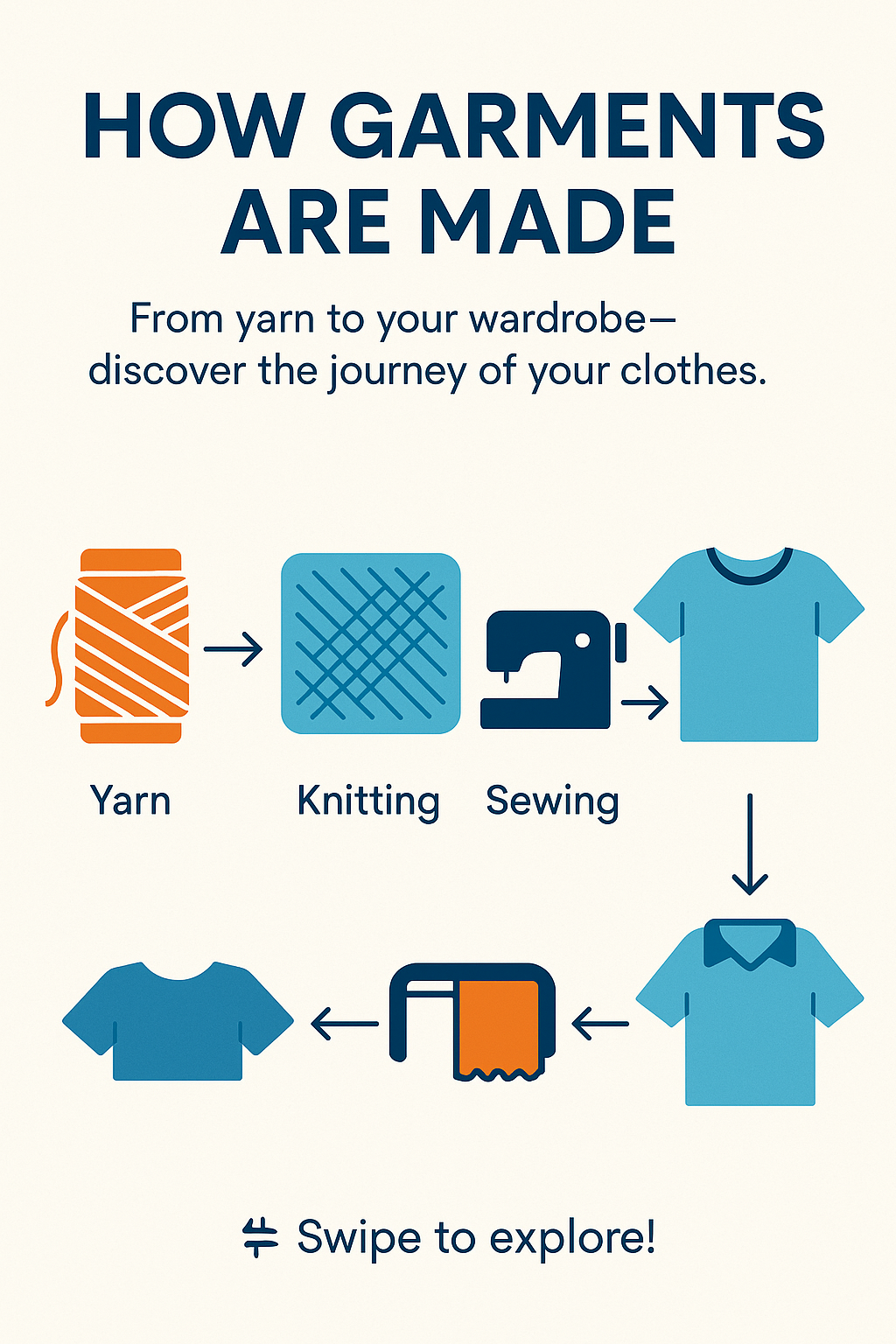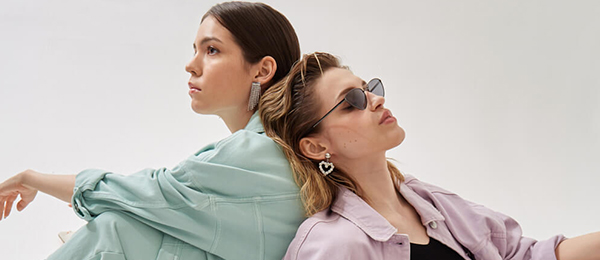The garment manufacturing industry is a powerful engine behind the global fashion economy, combining creativity with engineering. From raw fibers to finished, export-ready products, the production process follows a systematic journey that ensures quality, consistency, and scalability.
At RioLeaf Ltd., a trusted clothing manufacturer based in Bangladesh, this process is optimized through innovation, experience, and attention to detail. Whether it’s a bulk order for retailers or a custom OEM solution, each step in our supply chain is designed to meet international standards. Here’s an in-depth look at how garments are made—from yarn to the retail shelf.
1. Yarn Manufacturing: The Raw Beginning
All garments begin with fiber—natural (cotton, jute, linen) or synthetic (polyester, viscose, spandex). These fibers undergo a spinning process that twists and stretches them into yarn. The quality of this yarn significantly influences the strength, feel, and lifespan of the finished garment.
🧵 At RioLeaf, we work closely with yarn suppliers to ensure sustainable, certified, and high-quality inputs for our production lines.
2. Fabric Formation: Knitting vs. Weaving
Once the yarn is ready, it’s converted into fabric by knitting or weaving:
- Knitting creates soft, stretchy fabrics used for items like t-shirts, leggings, hoodies—our core specialties.
- Weaving offers structure and firmness, suitable for shirts, jackets, or trousers.
Modern machinery like circular knitting machines and air-jet looms ensure speed and uniformity at this stage.
3. Dyeing and Fabric Finishing
Next comes dyeing, where greige fabric (raw fabric) is colored using high-performance dyes. At RioLeaf, we use OEKO-TEX certified dyes and adhere to eco-compliance regulations to protect both workers and end-users.
Fabric is also finished to enhance performance:
- Shrinkage control
- Wrinkle resistance
- Anti-pilling treatment
- Soft-hand finish
4. Fabric Inspection and Testing
Before fabric moves forward, it is visually and mechanically inspected for defects like holes, dye patches, or uneven textures. We use 4-point inspection systems, and fabric is tested for:
- Color fastness
- Tensile strength
- Shrinkage after wash
- GSM (weight)
5. Pattern Making and Grading
Each garment design begins as a pattern—a template that outlines the shape and structure. Our team creates digital patterns using CAD systems, which are then scaled (graded) into all required sizes: XS to 5XL or as requested.
This ensures uniformity and fit accuracy across mass production.
6. Fabric Cutting
Using advanced spreading and cutting machines, the fabric is layered and sliced precisely along pattern lines. Automatic cutters reduce waste and improve speed.
✂️ Precision cutting is essential—any inaccuracy at this stage will lead to production losses.
7. Sewing and Assembly Line
This is where fabric pieces come to life. The sewing floor is divided into modular lines, where operators work on:
- Sleeves
- Hems
- Pockets
- Collars
- Zippers
RioLeaf operates 4 master production lines to ensure scalable, deadline-driven manufacturing.
8. Quality Control (QC) and Inline Inspection
QC inspectors monitor each line for:
- Stitch quality
- Loose threads
- Fabric flaws
- Trim alignment
A final inspection checks against the approved sample (golden sample). Only 100% passed units are packed.
9. Ironing and Final Touches
After QC, garments are ironed using steam presses. Trims like buttons or zippers are reinforced. Labels (brand, size, care) are added, along with hang tags or price stickers if required by the client.
10. Packaging
We follow buyer-specific packaging instructions:
- Individual polybags or eco-packaging
- Size labels
- Bulk carton arrangements
- Barcode tagging
RioLeaf also supports custom packaging for premium brands.
11. Shipping and Export Logistics
Packed goods are handed over to freight partners—by air or sea. We provide:
- Commercial invoice
- Packing list
- Certificate of origin
- GSP Form A (for EU/UK duty-free access)
- Bill of lading
🌍 RioLeaf’s REX registration enables zero-duty imports for European buyers.
Why This Matters to Buyers
When you source from a professional manufacturer like RioLeaf, you’re not just buying garments—you’re investing in a well-oiled, ethical, and globally certified production system. Our transparent process, factory audits, and timely delivery make us a trusted choice for both fashion startups and international retailers.


